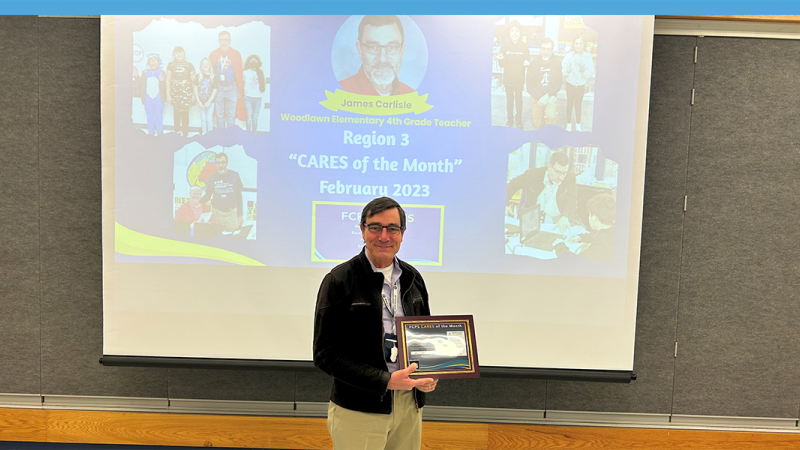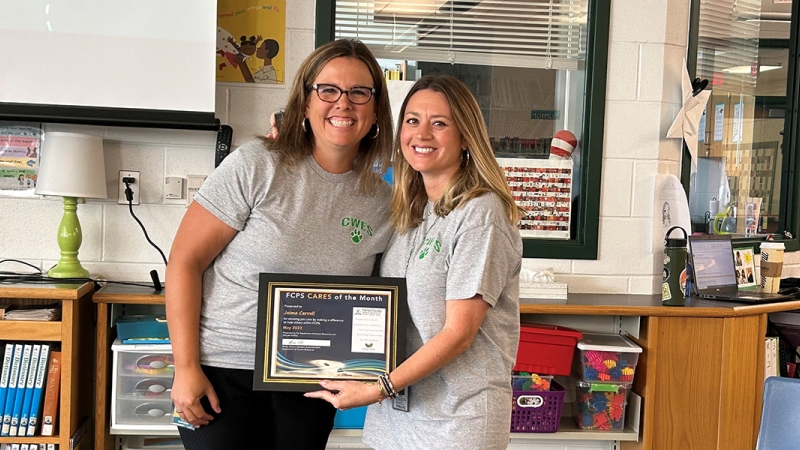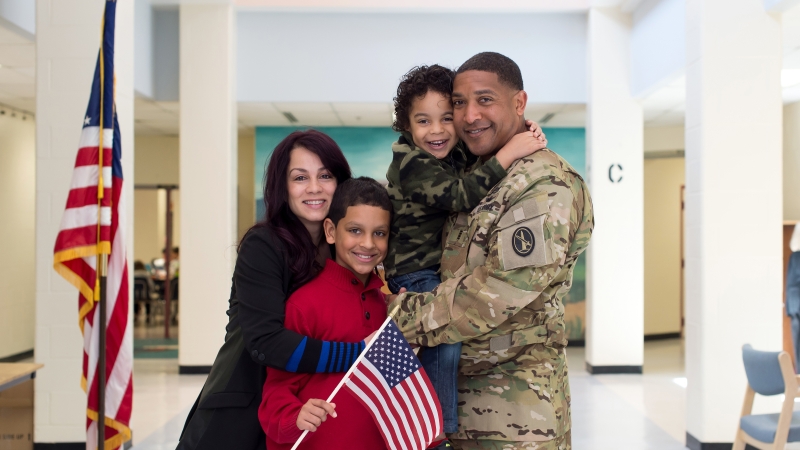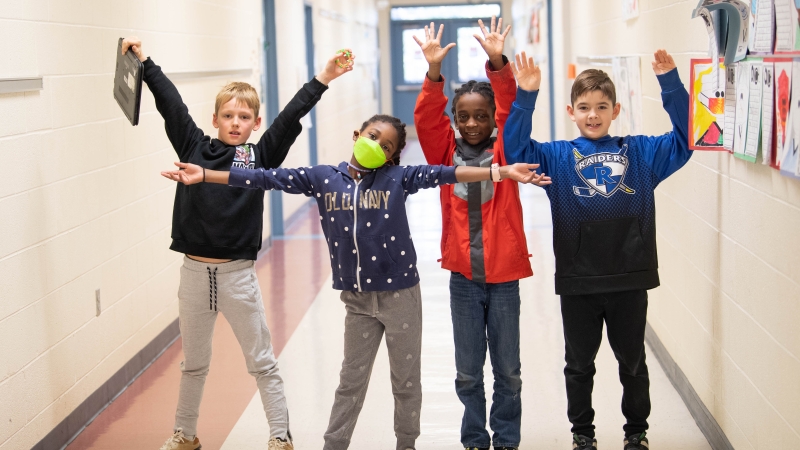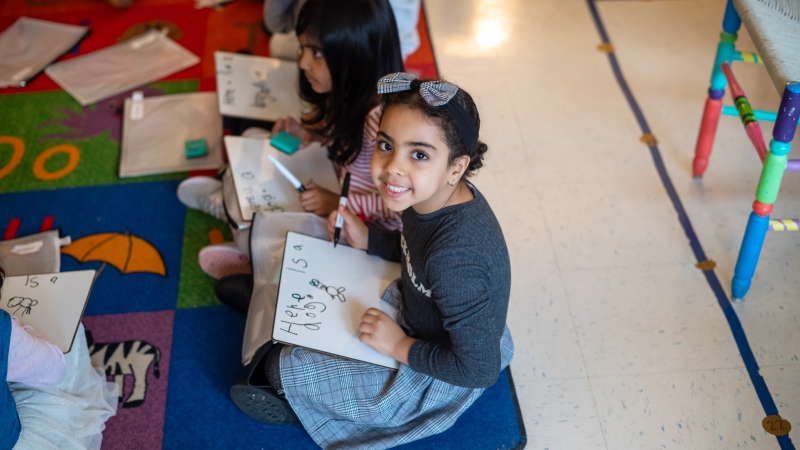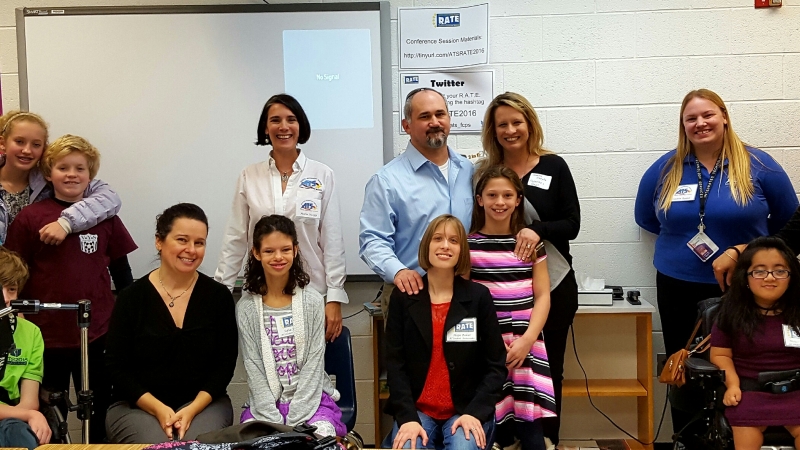
Offering Students Love, Empathy, and Compassion
FCPS MentorWorks program helps eliminate gaps in opportunity, access, and achievement through mentoring. Every student in FCPS should be able to name an adult in their community they can talk to. A mentor is a caring, responsible person, interested in spending time with a student, encouraging them to develop their strengths and capabilities. A mentor does not provide academic support.
MentorWorks is looking for non-school-based staff to offer at least 30 minutes of their time a week to students.
Nekpen “Amie” Agoi (pictured above) immigrated to the United States from Nigeria. Amie, who was mentored in college, started to see students in her community who could use some guidance. “I don’t like to see kids just roaming around,” she said. So, she decided to do what she could to make a difference.
“If we don’t start with our community, we won’t see any change,” she said. By offering young people empathy and kindness, Amie hoped to see the kids thriving.
And she did! One of her first mentees is now working at Deloitte.
Amie learned about FCPS’ MentorWorks program and started volunteering at Groveton Elementary. The first year she worked with six kids. Soon the program grew to 40 students supported by two mentors.
“You could see the transformation in kids, in their learning and behavior,” she said. Amie ran into one of the student’s parents and they thanked her for her work. “That’s what matters — little steps to pour in love, empathy, and compassion; to see the kids doing what they need to do.”
After two years, Amie followed the students to Sandburg Middle School. The group has designed a curriculum and activity book. They talk about feelings or a positive attitude like kindness. They apply concepts such as how to respond to adults appropriately and talk about how the strategies are working for the students. They pick topics based on what they’re hearing from students.
“There’s a way a teacher expects you to talk to them,” Amie said. She knows mentoring is making a difference when the students come back and say it worked and their teachers say thank you. Or if it doesn’t work, Amie said, “Let’s keep trying.”
One of Amie’s mentees wasn’t responding to adults when she met her. “She was always moody. She would come to mentoring and didn’t want to talk,” Amie said. But eventually, she started responding. “She wrote a beautiful letter and thanked me. She still reaches out to me even though they moved. She’s changed so much. That, for me, is transformation. That’s what keeps me going. What you pour into children, they give back to you.”
Interactions like this inspired Amie to do more than volunteer with the county. She’s currently in the Teacher Trainee program working toward licensure so that she can be a teacher. With her own children in school, Amie wanted to work closely with other kids to continue to have a positive impact on her community.
“If you pour all these ideas into these kids; before you know it, our kids are thriving and they are making positive policies.”
But she isn’t leaving mentoring behind. She’s working to create a non-profit called GLOW to help recruit mentors to be trained by MentorWorks to work in local schools.
From Mentee to Mentor: Building Positive Relationships
Manuel “Manny” Gomez Portillo, an educational specialist in Equity and Cultural Responsiveness, immigrated to Northern Virginia as a 10 year old from El Salvador. He was reunited with his parents who he hadn’t seen in nine years. Manny remembers being scared and unfamiliar with both the language and the culture. “The sudden changes truly impacted my mental health,” he said. “I was beginning to hide my heritage and language. I actually started to feel ashamed about it.”
His Fairfax County Public Schools (FCPS) counselor saw how the change was impacting his grades and placed him with a mentor.
“I remember that it was a truly powerful experience for me,” he said. “My mentor provided me with a safe space to talk and relax that was outside of the classroom. My mentor took the time to learn about my culture and language and shared a lot about American culture. This made me feel a lot better and I felt happier to go to school.”
Because of his experience with mentors, Manny decided he wanted to become an educator.
“My ‘why’ as an educator is to provide a space where students thrive, feel safe, build positive relationships, and are provided with the necessary tools to be successful,” he said. “In addition, it is important for students to celebrate their backgrounds and to leverage it as a tool of empowerment towards their education and daily lives.”
When he heard about the opportunity to volunteer as a mentor, he signed right up. “I know from personal experiences that mentors make a huge difference in the educational experience of a student.” His mentor had made such a positive impact on his educational experience.
When Manny first met his mentee, he made sure to provide the same safe, relaxed space his mentor provided to him. “From our first meeting, I was authentic. I recall at our first meeting how the mentee shared a very powerful immigrant story and we quickly made connections,” Manny said. “As I shared my own immigrant story, my mentee realized that they were very similar. He looked at me and smiled. From that moment on, I knew it would be a meaningful space for my mentee.”
Manny has been meeting regularly with his mentee since he was in the fifth grade (he’s now in ninth grade). They spend about a half hour together, often eating lunch, talking about sports, playing games, and sharing their cultures.
“The most rewarding experience for me has been seeing my mentee grow and mature over the years,” Manny said. “When we first started meeting, he struggled a lot with English and now we have full conversations. He amazes me everyday and keeps me connected to my ‘why.’ My mentee reminds me of my core reason for going into education!”
Manny collaborated with his supervisor and the school’s mentoring coordinators to make a plan to allow for him to mentor during the day for 30 minutes each week. Working together, they found a schedule that wouldn’t interfere with Manny’s work or the student’s academics.
“Mentoring is truly a powerful and transformative experience,” Manny said. “It is a simple process, but it can have a personal impact on the lives of the mentee and mentor. It has been extremely rewarding to see my mentee talk about, work on, and achieve the many goals in his life!”
Citing research that shows that students who have adults they can talk to are more likely to make positive life choices, Manny reflected that “being a part of one of these relationships is an incredibly rewarding feeling!”
